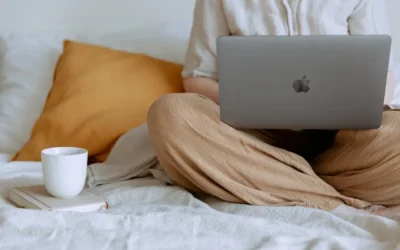Studying for exams is always difficult, but it can seem even harder with complicated topics and long night shifts sitting at your desk ahead of the big day. Wouldn’t it be great to have a superpower that made studying easy?
As it turns out, we might all have one lying dormant that we’re not making enough use of!
What is sleep?
As you might have guessed, we are talking about sleep. Sleep is an incredibly important recurring state of altered consciousness that allows for the maintenance of our bodily functions, but we hardly think about it unless we’re in dire need of some shut-eye.
Sleep is a common activity across species: mammals, birds, reptiles and even insects will enter into a sleep-state, or something very similar. (1)
So, why do we need sleep?
What happens without enough sleep?
Maybe the right place to start thinking about this topic is to look at what happens if we don’t get enough sleep.
If you stay up a little too late one night – whether you’re studying, watching an addictive series or spending time with friends or family – you might notice that you’re in a bad mood the next day, your concentration capacity may be reduced and you’ll likely feel exhausted.
Indeed, research shows that a lack of sleep disrupts our ability to learn and is a serious health risk. (2) There are many theories as to why sleep is so crucial, but ultimately, the true value of sleep still remains a bit of a mystery to science.
What we do know is that getting enough sleep not only makes us feel good, it can also boost our mental ability.
Sleep helps us to recall facts and memorise images, smells or sounds. It may even help us to find creative solutions to problems faced the previous day. (3) The secret to a “fresh pair of eyes” really lies in a good night’s sleep!
Memory replay while we sleep
It has been shown that specific brain activity of mice exploring their environment can be seen again while they sleep after the exploration. The next day, this brain activity is even more pronounced when the mice explore the same environment – as if sleep is replaying the experience and strengthening the memory of it. (4) Whether the observed activity is indeed a replay of memories, whether it corresponds to dreaming, and whether we can manipulate it to boost memory is a hot topic in current research.
How much sleep do I need?
The short answer to this question is that there is no short answer.
As with many things in medicine and neuroscience, every individual has individual needs and the optimal amount of sleep can vary between an average of 7 to 9 hours for adults and up to 11 hours for children and adolescents. (5) That said, there are some general factors that influence our sleep requirements.
Generally, the longer we are awake, the more we need to sleep. Research also shows that learning and new experiences make us sleep more deeply. We are also more likely to sleep well during the night and in darkness. This tendency varies with age: when we are teenagers, we tend to sleep rather late in the night and like to get up late in the morning – that is, we would if there weren’t an early start for school waiting for us.
So how do you find your optimal sleep duration and how do you get enough shut-eye?
Boost your sleep while you’re awake
Completing a driving simulation task will make the brain area controlling fine motor skills sleep more deeply afterwards. If a challenging waking experience is combined with a long time awake, these brain areas fall asleep even earlier than the rest of the brain – a phenomenon called ‘”local sleep”. (6) This suggests that we can literally be half asleep if we are pushing ourselves to study late at night after an already busy day!
What does it mean to have a good night’s sleep?
The easiest way to find your personal sleep duration is simple: don’t set an alarm. If you have nothing waking you up, your body will take the sleep it needs. If you sleep much longer on days without a set alarm, such as on weekends, it is a good indication that you had too little sleep previously.
Sleeping in on the weekends is one way to compensate for previous sleep loss but it doesn’t change the fact that you’d be sleep deprived for most of the week – exactly the time when you need to be most focused for effective studying!
So, what is the solution to getting enough sleep if you have to get up early? Obviously, it is to sleep early. This is easier said than done, as most of us can’t just fall asleep whenever we’d like to. Luckily, there are quite a few tips to help us fall asleep earlier, sleep better and be fit for the next day.
A recipe for better sleep
While there is no single trick to getting a a perfect night’s sleep, there are a few tips that help most of us. (7)
Avoiding bright lights before bedtime – including PC screens and smartphones – as well as a slightly reduced room temperature, can benefit sleep.
Any stressful or exciting experiences can delay sleep onset. This could be browsing social media, watching videos or even ruminating about the next day. It can be a good idea to develop a routine of winding down and relaxing before going to bed, such as reading a book or writing a to-do list for the next day.
In summary:
– no bright light or screens one hour before sleep
– bedroom temperature between 14°C and 18°C
– no exciting or stressful activities before sleep
– no big meals or caffeine
– … and any personal routine that helps you wind down and relax.
Why do we need sleep?
You might still wonder why our health and ability to function is dependent on a state that can so easily be disrupted by our lifestyle. Why do we need to enter a dreamland to gain these benefits? And what other secret advantages might the sleep state hold that we still don’t know about?
These are questions yet to be answered. While this exciting research is going on, you can already harness the benefits of sleep to boost your waking life.
As it turns out, sleep is not a superpower, but it does reveal how able we can be on our own!
What Next?
- Interested in taking your study of the mind to the next level? Find out more about Oxford Scholastica’s Psychology summer school and online courses.
- If you’d like to read more great neuroscience content, take a look at our blog on Criminal Psychology: The Mind of a Murderer





